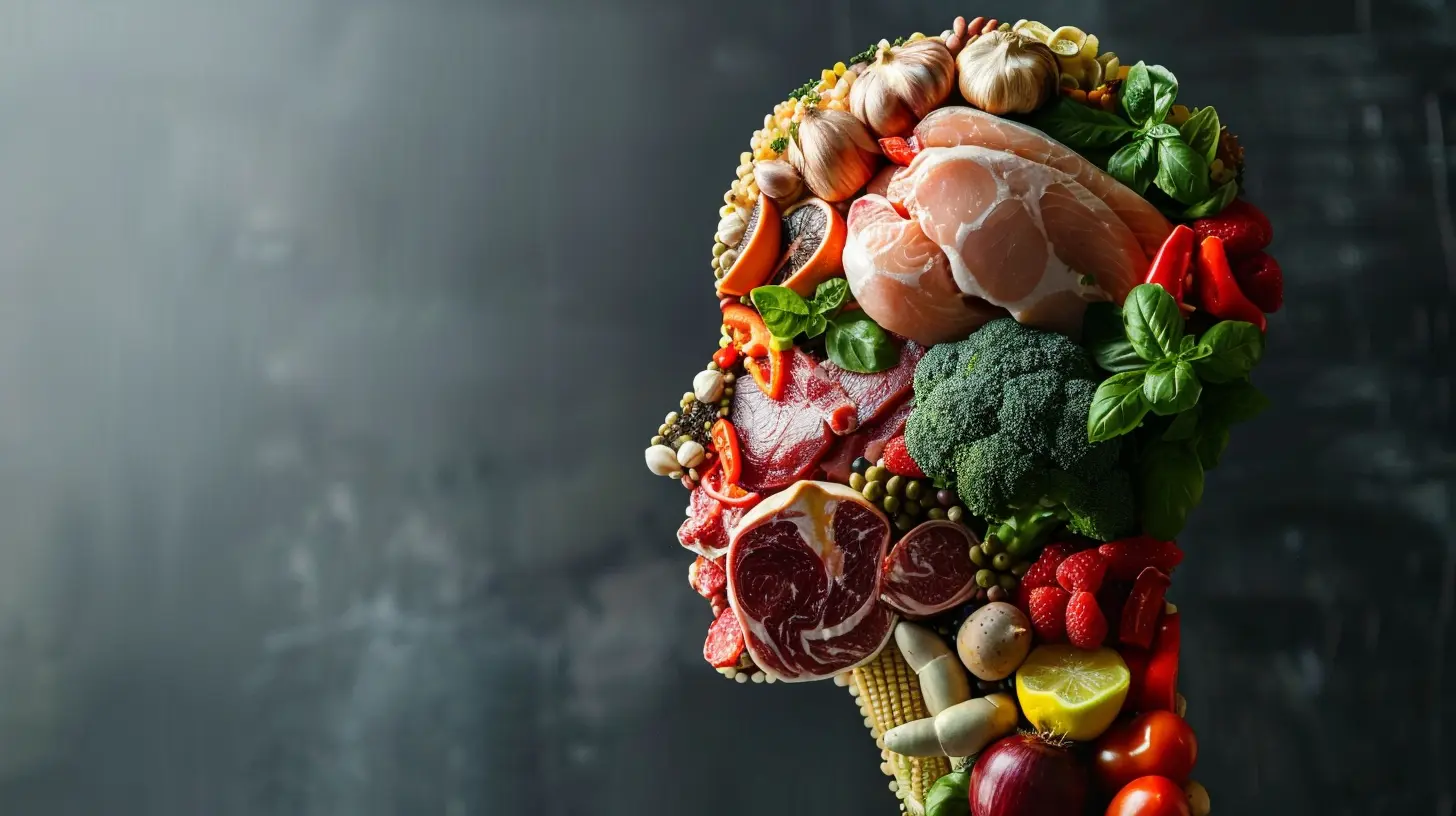Low Carb Diets and Mental Health: Can It Improve Your Mood?
13 August 2025
Let’s be real for a second—most of us have tried some kind of diet at least once in our lives. Whether it’s to lose a few pounds, get more energy, or just feel better overall. But here’s a thought: what if the food you eat could actually affect your mental health too?
Enter the low carb diet.
You’ve probably heard of keto, Atkins, or other low-carb eating styles. People rave about weight loss, clearer skin, and better energy. But what’s the deal when it comes to your brain and emotions? Can cutting carbs actually lift your mood and help you feel more mentally balanced?
Let’s dig into it.
What Exactly Is a Low Carb Diet?
Before we jump into the deep end, let’s clear up what a low carb diet really is.A low carb diet, as the name sounds, reduces your intake of carbohydrates. Bread, pasta, rice, sugary treats, even some fruits—all of these are high in carbs. Instead, your plate gets filled with proteins, healthy fats, and low-carb veggies.
There are different levels and versions. Some people go hardcore with keto (we’re talking 20-30 grams of carbs per day), while others just aim to cut out processed sugars and refined carbs. But the goal stays the same—less sugar, more fat and protein.
Your Brain on Carbs: The Science Behind the Sugar
Carbs are your body’s main source of glucose. When you eat a slice of bread or a bagel, your body breaks it down into sugar, which then fuels every cell in your body—including your brain.Sounds good, right?
Well… yes and no.
Short-term, carbs give you a quick energy boost. But that’s often followed by a crash—cue the irritability, brain fog, and sudden chocolate cravings. That rollercoaster of blood sugar spikes and crashes can mess with your mood.
Ever felt cranky when you’re hungry? That’s your blood sugar playing tricks on your brain.
So when you reduce carbs, especially refined ones, you’re basically saying “no thanks” to that emotional yo-yo.
Can a Low Carb Diet Actually Boost Your Mood?
Alright, here’s the juicy stuff. There's growing evidence that cutting carbs might help balance mood, reduce anxiety symptoms, and even improve focus and memory. Let's unpack how this works.1. More Stable Blood Sugar = More Stable Mood
Have you ever been "hangry"? That’s your blood sugar tanking. High-carb diets cause spikes and crashes in glucose, and those crashes can make you feel tired, anxious, or downright grumpy.By limiting carbs, especially the ultra-processed kind, your blood sugar tends to stay more stable throughout the day. And when your blood sugar is stable, your brain can function more smoothly—no more sudden mood crashes in the middle of the afternoon.
2. Keto and That Feel-Good Brain Chemistry
Here’s something cool: when you're on a very low carb diet (like keto), your liver starts producing ketones—compounds that your brain can use as fuel instead of glucose.Studies have shown that ketones might help regulate neurotransmitters like GABA and glutamate. These guys are major players in brain chemistry. GABA calms things down, and when it’s in balance, you're less anxious and more chill.
On top of that, many people report a kind of "keto high" or mental clarity and euphoria early in their low-carb journey. Scientists think ketones may even help reduce inflammation in the brain, which is linked to mood disorders like depression.
3. Less Sugar Can Mean Fewer Mood Swings
Sugar might taste sweet, but it’s not always kind to your mood. High sugar diets have been linked to depression and other mood disorders.Why? Because sugar messes with the brain's reward system. It gives you that dopamine surge, which feels great for about 10 minutes… then it's gone. And you want more. Over time, this can throw your brain chemistry out of balance.
So when you ditch sugar, you break the cycle. You stop depending on that next candy bar for a pick-me-up, and your mood doesn’t live and die by your next snack.
Real Talk: How People Feel on Low Carb Diets
Let’s bring this down to earth. What are real people saying?Many people who switch to a low carb or keto lifestyle notice some clear mental health changes:
- Better focus – No more mid-day brain fog or memory issues.
- More energy – Steady fuel = steady energy without the crashes.
- Calmer mood – Less anxiety, fewer emotional outbursts.
- Improved sleep – With fewer sugar spikes at night, the body can rest better.
Of course, this is all super individual. Some people thrive on low carb. Others feel sluggish or moody, especially in the first few weeks (often called the "keto flu"). That’s why it’s essential to listen to your body and adjust as you go.
What Does the Science Say?
So far, most of the research around low carb diets and mental health is still emerging, but it’s promising.- A 2019 study published in Frontiers in Psychiatry found that a ketogenic diet significantly reduced depression and anxiety symptoms in patients with schizophrenia.
- Other studies have shown that low carb diets may benefit people with bipolar disorder, ADHD, and even Alzheimer’s disease.
While these results are exciting, we’re not quite at the point where doctors will prescribe keto for mood disorders across the board. But the connection is growing stronger, and it’s definitely a topic more researchers are taking seriously.
The Gut-Brain Connection: Yup, It Matters
You’ve probably heard the phrase “gut feeling.” Turns out, it’s more than just a saying. Your gut and brain are connected in ways scientists are still uncovering.Here’s the scoop: your gut microbiome—the community of bacteria living in your intestines—can affect your mood, thanks to something called the gut-brain axis.
A diet high in sugar and processed carbs can throw your gut bacteria off balance, leading to more inflammation and worse mental health. On the flip side, a whole-food, low-carb diet can help promote a healthier gut, which may in turn boost your mood.
Think of it as cleaning up your internal garden. Better soil (a healthy gut) means better growth (a happier brain).
Not All Low Carb Diets Are Created Equal
Important side note here: just because something is “low carb” doesn’t make it healthy.If your version of low carb means processed meats, cheese by the pound, and no vegetables… your mood might not improve much.
The most effective low carb diets are balanced and nutrient-dense. Think:
- Leafy greens
- Healthy fats like avocado and olive oil
- Nuts and seeds
- Lean proteins and fatty fish
- Fermented foods (great for your gut!)
If you fuel your body with quality nutrition, your brain benefits too.
Who Should Be Careful with Low Carb Diets?
Okay, let’s be fair—it’s not a mood-booster for everyone.Some people may experience increased irritability, fatigue, or even depressive symptoms when starting a low carb diet. This is especially true if the transition is too fast or if you’re not eating enough.
Also, if you have a history of eating disorders or chronic low moods, it's wise to speak with a healthcare professional before diving in. Mental health is complex, and diet is just one piece of the puzzle.
Tips for a Mood-Friendly Low Carb Lifestyle
Ready to give it a shot? Here are some practical tips to keep your mood in top shape while going low carb:- Ease into it – Don’t go zero-carb overnight. Gradually reduce sugars first.
- Stay hydrated – Dehydration can worsen mood and cause headaches.
- Electrolytes are your friend – Sodium, potassium, and magnesium help stabilize your mood and energy.
- Eat enough calories – Undereating can spiral into fatigue and irritability.
- Get your greens – Fiber and micronutrients are essential for gut—and brain—health.
- Listen to your body – If you’re feeling worse, not better, tweak your approach.
Final Thoughts: It’s Not Just a Diet. It’s a Lifestyle Shift.
So, can a low carb diet improve your mood?In many cases, yes. The stable energy, reduced inflammation, balanced blood sugar, and improved brain chemistry all point to benefits for your mental health.
That doesn’t mean it’s a one-size-fits-all miracle—nothing ever is. But if you're struggling with fatigue, brain fog, or emotional ups and downs, changing the way you eat might be a powerful step in the right direction.
After all, food isn’t just fuel—it’s information. Every meal sends a message to your brain and body. So, the next time you feel off, take a peek at what’s on your plate.
Your mind just might thank you for it.
all images in this post were generated using AI tools
Category:
Low Carb DietAuthor:

Arthur McKeever
Discussion
rate this article
1 comments
Damian McAuley
Low-carb diets may impact mood; individual results can vary greatly.
August 23, 2025 at 4:47 PM

Arthur McKeever
Thank you for your comment! Yes, individual responses to low-carb diets can differ widely, and their impact on mood can vary from person to person.


